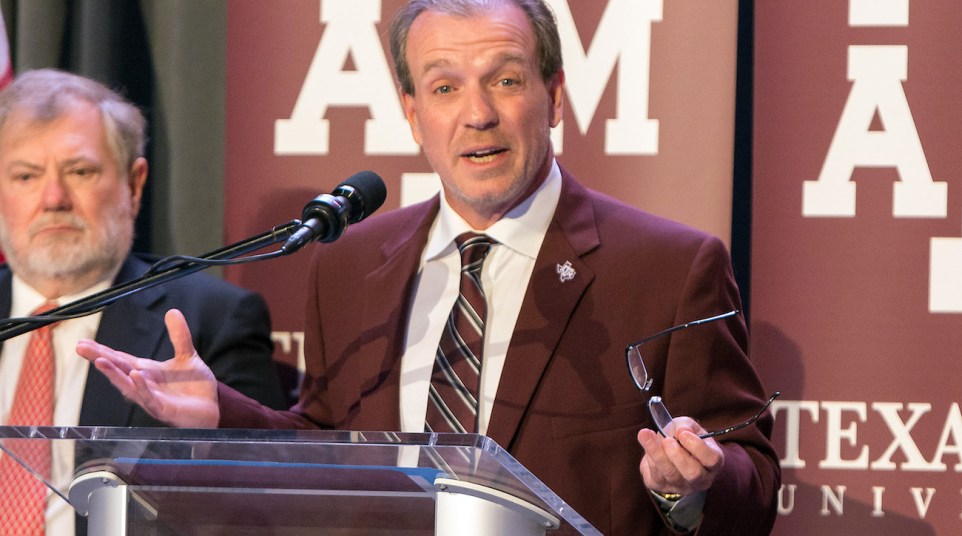
One area each SEC team needs to improve the most in 2018
Alabama just won the national championship, so there can’t be a whole lot it needs to improve for next season.
Georgia barely lost in the national championship game, so there can’t be that much for it to improve.
Tennessee just went winless in the SEC, so it needs to improve pretty much everything.
And in between the top and bottom of the SEC, every team is looking to get better for next season. Some need to improve in more areas than others, but everybody needs to start somewhere.
Here’s a team-by-team look at the one area each SEC needs to improve the most in 2018, in inverse order of the regular-season conference standings:
Tennessee
Scoring: You can’t win if you don’t score, and the Volunteers just didn’t score nearly enough last season. New head coach Jeremy Pruitt is a defensive guy, but his offense needs to significantly increase its 19.8-point scoring average if he’s going to succeed.
Vanderbilt
Rushing: The Commodores don’t usually get the strongest linemen or the fastest running backs, but they have to find a way to run the ball more effectively after averaging 107.6 rushing yards per game and 3.7 yards per attempt last season.
Arkansas
Rushing the passer: The Razorbacks had just 19 sacks last season and that comfort level for opposing quarterbacks left Arkansas ranked 112th in the country in defensive pass efficiency.
Florida
Penalties: It’s hard enough to beat SEC opponents without contributing to your own demise. The Gators did just that last season with eight penalties per game; only five teams averaged more.
Ole Miss
Red zone defense: The Rebels ranked 115th in the country after allowing opponents to score on 89.5 percent of their visits to the red zone; 37 of those 57 visits resulted in touchdowns.
Kentucky
Scoring through the air: The Wildcats threw just 10 touchdown passes last season. They have to do better than that.

Credit: Jim Brown-USA TODAY Sports
Missouri
Turnover margin: The Tigers tied for 110th in the country in turnover margin after giving the ball away eight more times than they took it away.
Texas A&M
Passing efficiency: The Aggies completed just 56. 3 percent of their passes last season, but help is on the way. If new coach Jimbo Fisher knows anything, he knows to build an efficient offense, especially in the passing game.
Mississippi State
Passing efficiency: The Bulldogs expect quarterback Nick Fitzgerald to fully recover from his leg injury, which is great news for the running game. But he and the offense will have to do better in the passing game after completing just 54.1 percent of their passes and ranking 111th in passing efficiency at 113.7.

Credit: Matt Bush-USA TODAY Sports
South Carolina
Rushing: The Gamecocks averaged 122.2 rushing yards per game and 3.92 yards per rush. They’ll have to run the ball better if they expect improve on their runner-up finish in the East division.
LSU
Red zone scoring: The Tigers changed offensive coordinators after finishing 104th in red zone offense at 76.8 percent. They often were plagued by poor field-goal kicking, which prevented them from getting three points after the offense failed to get seven.
Auburn
Intercepting the ball: Overall the Tigers played very good defense, but they were lacking in interceptions as their total of six tied for 110th in the country. If they can increase that number and maintain the percentage that were returned for touchdowns (33.3), they’ll be on to something.
Georgia
Penalties: When you reach the national championship game, lead that game most of the way and lead in overtime before losing, any need for improvement probably qualifies as nit-picking. In the Bulldogs’ case, they ranked 82nd in fewest penalties per game (6.33) and 76th in penalty yards per game (55.67).
Alabama
Field goals: All’s well that ends well, but the Crimson Tide’s season nearly didn’t end so well. Missed field goals of 40 and 36 yards in the national title game put Alabama, which was 10th in the SEC in field-goal percentage, in a precarious position before it prevailed over Georgia, 26-23.
